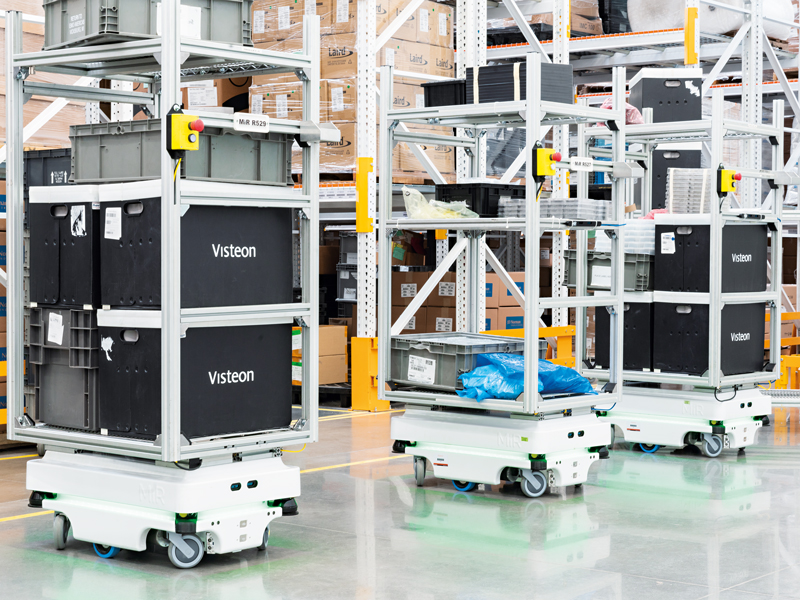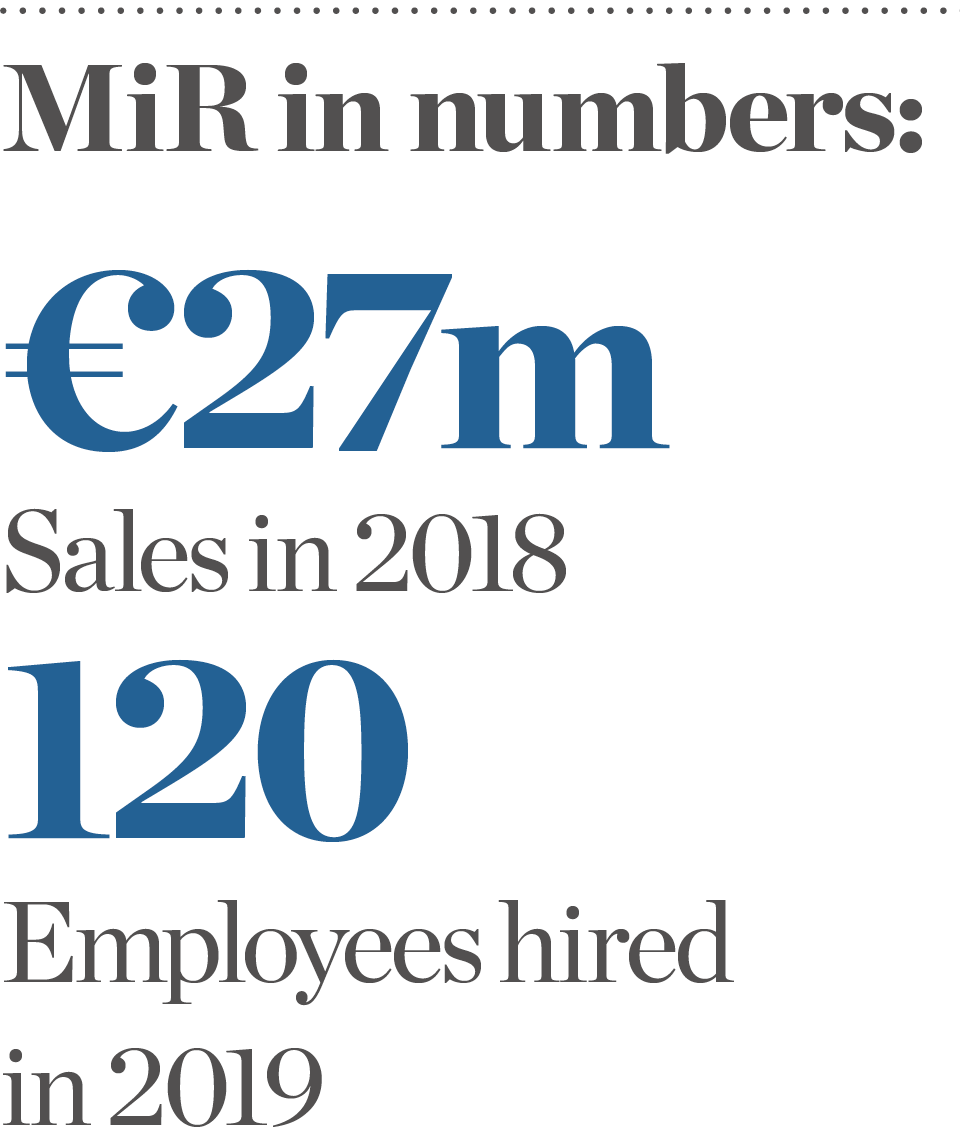
When Thomas Visti joined Mobile Industrial Robots (MiR) as CEO and co-owner in the autumn of 2014, the company had just three employees – himself included – and had not sold any robots. In the five years that have passed since, MiR has become the global market leader in autonomous mobile robots (AMRs). Today, it boasts some of the world’s largest companies as customers and has an international distribution network that spans more than 50 countries.
The Danish company’s growth has been so aggressive that MiR has registered a three-digit increase in its turnover every year since it was founded. What’s more, the business was acquired by Teradyne, a supplier of automatic test equipment, in 2018 for $148m (€133.1m), with a further $124m (€111.5m) set to be injected if MiR’s performance targets are met for the next two years. It is an exciting time for MiR and the robotics industry. European CEO spoke to Visti to learn more about the company’s success and how he continues to drive MiR forward.
How has MiR become so successful?
I believe that success can be achieved when you try your hardest in everything you do – dedication is the key. It’s important to be concrete when setting goals so that you and your employees can achieve them. This is what we have done at MiR: while our growth targets are extremely high, everyone in the organisation knows what they need to do to achieve them. In this way, the will to succeed has become a part of our company culture. So far, this approach has worked very well for us.
When companies consider optimising their internal logistics, I want MiR to be the first business they think of
Just five years ago, I was driving around with our first robot, the MiR100, in the back of my car to give demonstrations to distributors and companies. Today, we have created a new market for AMRs and MiR is a global leader in the sector. I am heading up a business that recorded €27m in sales in 2018 and has hired 120 new employees in the past year. It’s extremely rewarding to be part of a successful company and to see employees take pride in being responsible for that success. Reaching our goals and continuing to grow is definitely what drives me to succeed.
What are your main priorities as CEO of MiR?
MiR operates in a market with extremely high potential. It’s imperative – and my responsibility – to ensure that we don’t just maintain our position as a market leader, but work to develop the sector and seize every opportunity that is presented to us. We have launched a new AMR every year over the past three years and have integrated artificial intelligence into our robots for even better navigation. By designing new features to meet evolving customer needs, MiR continues to set new standards for internal logistics robots.
Bringing our robots to market and expanding our distribution channels are also high priorities. We chose to operate globally from the beginning, building an international distribution network at a high pace. This has proven successful, as our main customers – Ford, Honeywell, Hitachi, Toyota and DHL – are large multinational companies that require global support. Today, we have 170 distributors in more than 50 countries and are always sure to use the most efficient distribution channels.
When companies consider optimising their internal logistics, I want MiR to be the first business they think of. As such, our focus is on having all the right innovative capabilities moving forward.
What is your company’s greatest asset?
A company is nothing without its people. MiR’s rapid growth has required many new hires. In fact, over the past year, we have brought in several C-suite executives to ensure the business moves in the right direction. As an innovative, young company that started with a small number of processes, it has been important for us to bring in experienced people to align our strategy with workflows as the company has scaled up.
How is MiR tackling the challenges that face the industry?
Manufacturers today face shrinking product lifecycles as a result of frequently changing customer demands. Consequently, they have shifted their strategies to produce a higher variation of products in smaller batches. To support this, they need agile production and factory layouts that can be easily modified. This requires a flexible logistics set-up, something traditional systems such as automated guided vehicles, trucks and conveyors
currently struggle to provide.
MiR has developed a solution to these logistical challenges. Autonomous navigation, which is enabled by laser scanners that feed data into a sophisticated algorithm, provides adaptability, as robots can detect obstacles and move around them. At the same time, the robot only needs an internal map, which can be made from a computer-aided drawing of the facility, to allow it to navigate. Moreover, it does not require any physical guidance in the form of wires or magnetic strips.
If any changes are made to the facility, the map simply needs to be updated.

Businesses around the world are being challenged by labour shortages and increasing labour costs. Therefore, it makes sense to automate non-value-adding tasks. Internal transportation is one such task; by adopting our user-friendly robots, businesses can redeploy their employees to higher-value tasks. Workflows are optimised and bottlenecks in production decrease as the robots ensure timely delivery.
What’s next for MiR?
With a mission to help companies optimise their internal logistics, MiR has outlined an aggressive growth strategy. We are leaders in the global AMR market and aspire to strengthen our position even further. According to the International Federation of Robotics (IFR), the market for AMRs is about to boom. The IFR predicts that global sales of robots will grow 12 percent annually between 2020 and 2022, meaning sales could hit $11.5bn (€10.4bn).
At MiR, we are ready to seize such opportunities. We see huge potential in the manufacturing industry, which has automated production processes for years but is now ready to optimise internal logistics. With e-commerce continuing to expand, third-party logistics is also a very interesting segment.
We will maintain and strengthen our position by hiring the right people to work on the right product range. We must continue with our global approach and keep learning, while also teaching the world about our technology to push demand.

